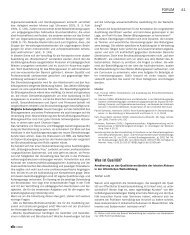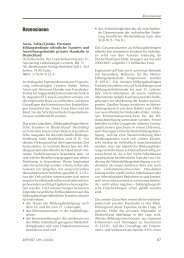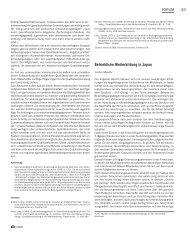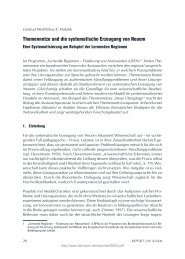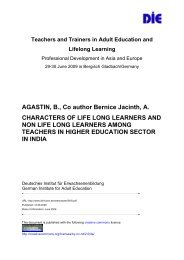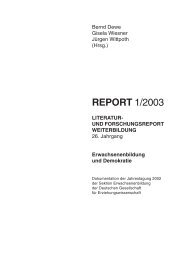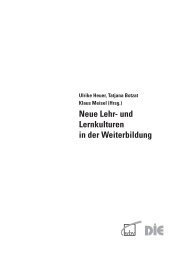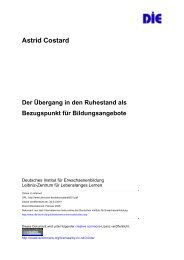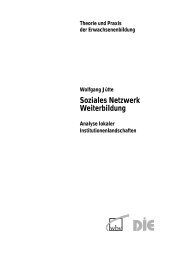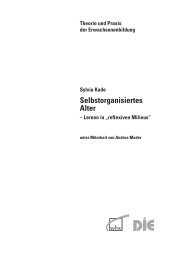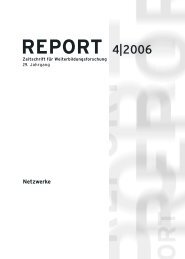Accreditation of Prior Experiential Learning (APEL)
Accreditation of Prior Experiential Learning (APEL)
Accreditation of Prior Experiential Learning (APEL)
Create successful ePaper yourself
Turn your PDF publications into a flip-book with our unique Google optimized e-Paper software.
them to feel that they are capable <strong>of</strong> undergraduate study. <strong>APEL</strong>, therefore, potentially<br />
addresses the social inclusion agenda. Peters/Pokorney/Sheibani (1999) argue that:<br />
“Students from very diverse backgrounds and a broad age range have found the process<br />
<strong>of</strong> <strong>APEL</strong> useful in enabling them to position themselves within the higher education<br />
environment and developing a continuity between their previous selves and themselves<br />
as learners.”<br />
Practice, however, is far from the rhetoric. As described above the use <strong>of</strong> <strong>APEL</strong> is limited<br />
to certain kinds <strong>of</strong> institutions. The data collected for the SOCRATES project on<br />
<strong>APEL</strong> and social inclusion indicated that, on the whole, <strong>APEL</strong> is not widening access to<br />
those who have been traditionally excluded from higher education. Most <strong>of</strong> the adults<br />
undertaking <strong>APEL</strong> in the sample were at the postgraduate level, rather than for entry at<br />
undergraduate level. They, therefore, in Bourdieu’s term, possess a reasonable amount<br />
<strong>of</strong> cultural capital. Universities that <strong>of</strong>fer <strong>APEL</strong> at undergraduate level generally do so<br />
in terms <strong>of</strong> accreditation or as part <strong>of</strong> the learning/teaching process. Evidence suggests<br />
that <strong>APEL</strong> is not being used to its full potential in relation to widening participation,<br />
social inclusion and lifelong learning. Adults’ life/work experiences could be utilised<br />
much more widely as a route for admission to higher education or as advanced standing<br />
as a strategy for increasing access for non-traditional students.<br />
As Waterhouse, a UK vice-chancellor <strong>of</strong> a new university outlined: “The world <strong>of</strong><br />
learning is international, its products essential to a knowledge-based economy, and<br />
today’s economy is global … The HE system (envisaged by some industrialists) is one<br />
which recognises that skilled labour in Europe is likely to become as mobile as in the<br />
US; a system which is credit-based, and where credits are portable (1995, p 8).<br />
<strong>APEL</strong> processes could contribute towards the need, manifested by globalised capitalism,<br />
for a mobile workforce within Europe as the European Union moves towards<br />
economic union. While recognising that there is currently some employment mobility<br />
occurring the implementation <strong>of</strong> <strong>APEL</strong> for this purpose would enable more people to<br />
take up the opportunity. Higher education institutions would play a central role in this<br />
process. <strong>APEL</strong>, through a portfolio or a demonstration <strong>of</strong> skills and knowledge for accreditation<br />
would enable employers to assess the employability <strong>of</strong> potential workers<br />
from another European country, dependent upon an individual’s fluency <strong>of</strong> the appropriate<br />
language. The <strong>APEL</strong> process could be a joint scheme involving higher education<br />
institutions and employers. In reality employment mobility within Europe is likely to<br />
be more attractive to younger adults and/or those without family ties as they are less<br />
likely to be tied geographically to a particular locality. Refugees, particularly the skilled<br />
and pr<strong>of</strong>essionals may also be a group for whom <strong>APEL</strong> would be a benefit. A more fluid<br />
system in relation to employment would also help to erode national boundaries within<br />
the European Union.<br />
<strong>APEL</strong> can also contribute towards encouraging other forms <strong>of</strong> mobility in relation to<br />
employment and education. <strong>APEL</strong> <strong>of</strong>fers a learner-friendly route back into education<br />
66


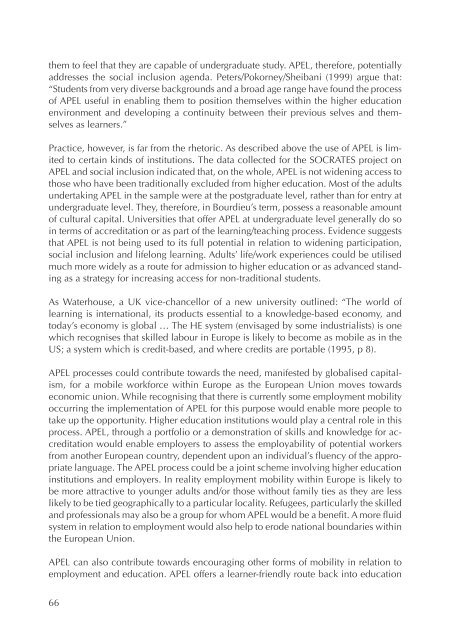
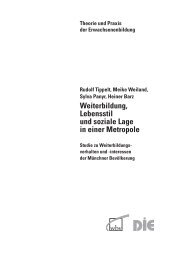
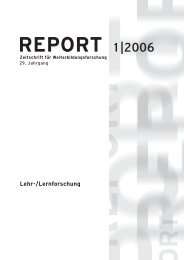
![PDF [KB 892] - Deutsches Institut für Erwachsenenbildung](https://img.yumpu.com/7495168/1/144x260/pdf-kb-892-deutsches-institut-fur-erwachsenenbildung.jpg?quality=85)
